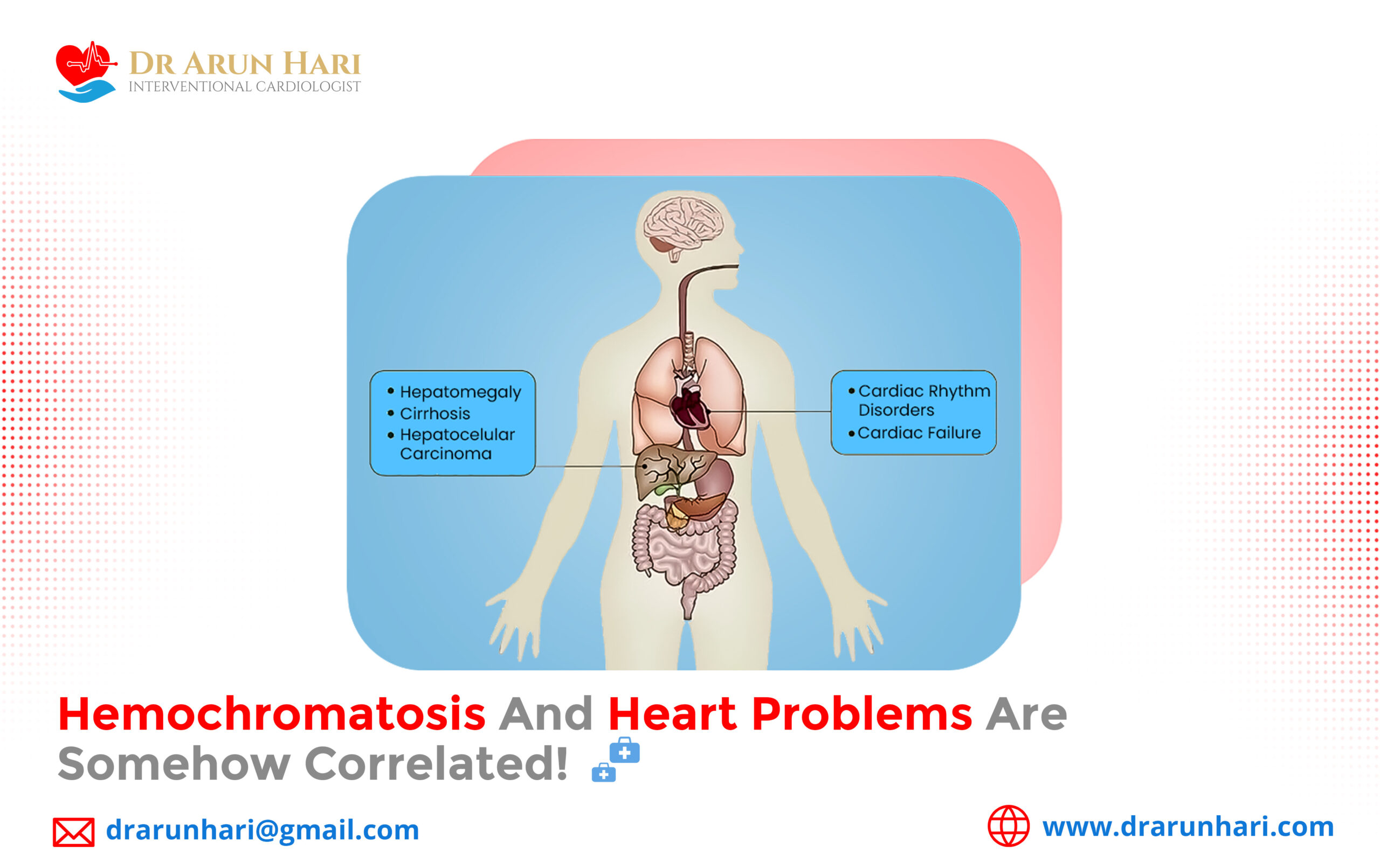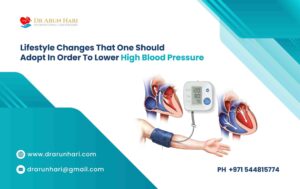How Is Hemochromatosis and Heart Problems Interlinked?
What Are the Symptoms of Hemochromatosis?
When Would the Symptoms Appear for Hemochromatosis?
When to See a Doctor for Hemochromatosis?
What Are the Causes of Hemochromatosis?
How to Diagnose Hemochromatosis?
Meet Doctor Arun to Ask about Hemochromatosis and Heart Problems
What Is Hemochromatosis?
Hemochromatosis is a genetic disorder characterized by the excessive accumulation of iron in the body by the absorption of too much iron from the food you eat. This extra iron gets deposited in organs like the lungs, heart, joints and even the pancreas. It can cause serious long-term health problems, such as heart problems and joint pain.
How Is Hemochromatosis and Heart Problems Interlinked?
Iron is essential for most bodily functions, but too much can be harmful to your organs, including your heart. So, the correlation between Hemochromatosis and Heart Problems is quite evident in the sense that the iron overload can cause damage to the heart muscle(s) and lead to conditions such as cardiomyopathy (disease of the heart muscle) and arrhythmias (abnormal heart rhythms), and even heart failure, in severe cases.
What Are the Symptoms of Hemochromatosis?
The main symptom of hemochromatosis is a build-up of iron in the body, which can lead to heart problems, joint pain, fatigue and other health problems. Other symptoms of Hemochromatosis may include abdominal pain, weakness, and decreased sex drive. As the disease progresses, it can even lead to organ damage and more severe symptoms such as liver cirrhosis, diabetes, and even heart failure.
When Would the Symptoms Appear for Hemochromatosis?
When it comes to the symptoms, they can appear at any stage of the disease. Early signs include fatigue, joint pain, and abdominal pain. Later signs may include changes in the skin colour or enlarged spleen or liver. Also, the symptoms may appear at any age, but most often occur after the age of 40. If left untreated, hemochromatosis can lead to organ damage and even death.
When to See a Doctor for Hemochromatosis?
When to see a doctor for Hemochromatosis depends on the severity of the symptoms. If you have any of the above symptoms, it is important to consult your doctor and get tested. Knowing the symptoms and when to see a doctor for hemochromatosis is important for managing your health.
What Are the Causes of Hemochromatosis?
The main cause of hemochromatosis is genetic predisposition or heredity, wherein, a genetic mutation (mutation in the HFE gene, which regulates the absorption of iron in the body) makes it difficult for the body to regulate iron absorption. The mutated gene causes the body to absorb too much iron from food, leading to iron overload. Other rare genetic mutations can also cause Hemochromatosis. In some cases, however, other factors such as too much alcohol consumption, having an underactive thyroid, certain blood disorders, chronic liver disease, and certain medications may tend to increase the risk of developing the disease.
How to Diagnose Hemochromatosis?
Diagnosis of Hemochromatosis usually involves performing a physical examination and some blood tests to check for elevated levels of iron in the body, as well as genetic testing to detect mutations in the HFE gene. Imaging tests such as an MRI or a CT scan/ultrasound can also be used to assess organ damage.
How to Treat Hemochromatosis?
There are several treatments available to manage Hemochromatosis. Phlebotomy (blood removal) is commonly used to remove excess iron from your body. In some cases, iron chelation therapy with iron chelating drugs, which involves taking medication to remove excess iron from the body, may also be used. Your doctor may also prescribe medications along with some dietary changes to reduce iron absorption and to help manage fatigue, pain, and other symptoms. In some cases, your doctor may recommend a liver or heart transplant to treat the disease. Lifestyle changes such as limiting iron-rich foods and alcohol can also be beneficial. Regular monitoring and follow-up with a healthcare provider are essential to manage the condition and prevent complications.
Meet Doctor Arun to Ask about Hemochromatosis and Heart Problems
Hemochromatosis can lead to damage in various organs, including the heart. Regular check-ups and monitoring are important for managing your symptoms due to hemochromatosis. So, it is ideal to get in touch with Doctor Arun at the earliest!





